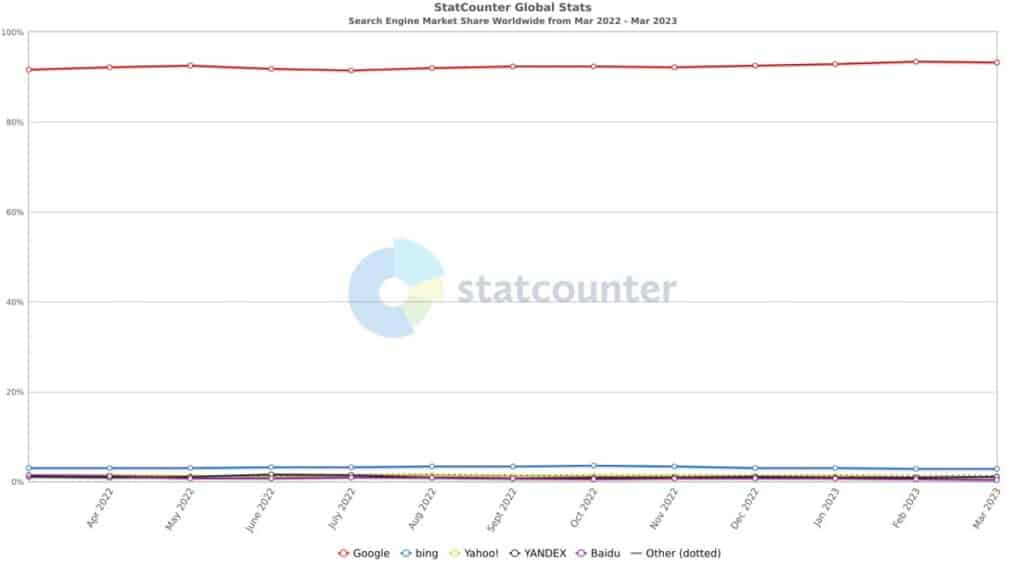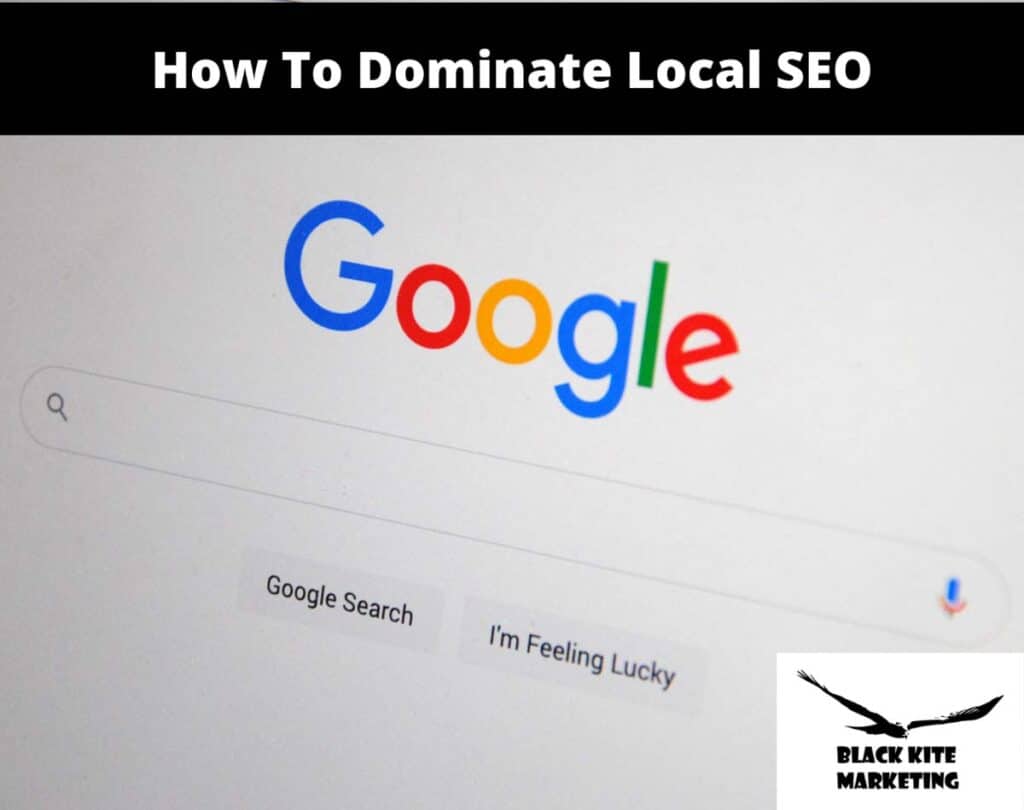The internet enables businesses to reach online consumers globally. Companies use different digital marketing strategies to get the maximum market share in their respective industries. But what if you are a small local business with a limited marketing budget? This is where Local SEO comes into play. This article will teach you how to dominate local SEO.
If you run a local business your focus should be on capturing the local community in your town, city, or state. Imagine a situation where your next-door neighbor is unaware of your business and is shopping elsewhere. That is why you need to dominate your local market.
Read on if you want to know how to dominate local SEO and optimize your website so you can influence the search engine results pages (SERPs).
What Is Local SEO?
Local SEO is the strategy you deploy to reach your local audience on search engines. Brick-and-mortar businesses and service oriented businesses use this type of marketing to get potential customers in their neighborhood, city or state.
Any business with a storefront or service area is considered local, including small, medium, and enterprise-level brands. Local search marketing focuses on raising brand awareness in specific areas.
SEO and Local SEO: How Do They Differ
SEO
SEO is optimizing your website for Google search results to attain high rankings for global and national searches. You can achieve this by using keywords or phrases relevant to your business’s products or services.
SEO is necessary for all companies from local, regional, national and international. Companies need a website that appeals to and attracts a broad audience by applying keywords and phrases relevant to their industry.
Local SEO
Contrary to the above, local SEO is for companies seeking local or regional supremacy. Typically, businesses that engage in local SEO will have a website designed to appeal to people in a specific area and target particular keywords and phrases relevant to not only the industry but the location as well. Some examples of a businesses that could use local SEO would be:
- Restaurants
- Landscaping
- Electricians
- Plumbers
- Contractors
- Auto shops
- Liquor stores
Local SEO focuses on improving your search rankings in and around a specific location. Although both SEO and Local SEO use similar methods, local SEO contains an extra emphasis on the location.
How Do The Two Differ?
Now that it is clear what SEO and local SEO are, take a look at some of the key variances between them.
- Audience: Your target audience will differ when promoting local SEO. Your website design and SEO strategy will focus on a specific area, while regular SEO looks at a broader audience without restrictions.
- Keyword Research: The type of keyword research also differs. The keywords and phrases you use for your local business focus on the local market. You will use terms like “Japanese restaurants near me”, “Auto Body Shop in Long Island” or “Landscaper in Suffolk County”. These are all location specific. Contrarily, SEO will target keywords and phrases without a geographical qualifying word or intent.
- NAP: Businesses that do local SEO stress name, address, and phone number consistency (NAP) across the internet to ensure local organic rankings.
- Competition: Businesses that engage in local SEO have fewer competitors since they are focused in a particular area.
How To Dominate Local SEO
Implement the following strategies to learn how to dominate local SEO
Ensure Your Google My Business Profile Is Up-To-Date
Google My Business, a free tool, enables you to manage how your business listing appears on Google Search and Maps. In March 2023 Google accounted for 93.17% of the search engine market share. Ignoring them will put your business far behind other similar companies.
You must ensure your business name, address, working hours, and contact details are all accurate. They must all match the one on your website and other local listings. If there is a change, ensure you make the changes in all your listings. Only then can the search engine identify that your business is the same across many sites.
Fill out every detail Google My Business allows. Post photographs of your products, create links to your web pages and select the proper tags for the most appropriate business category.

Register with other local listings
Add your site to as many listings as possible. The more citations you have, the better, as you not only create a higher possibility that someone finds your site but it also improves your rankings. Like we said before make sure there is consistency in your business name, address, and phone number (NAP) across all platforms.
Some places online to list your business include:
- Your local chamber of commerce: Local viewers trust companies that enlist with their local chamber of commerce. You can benefit from networking opportunities hosted by the chamber of commerce.
- Yelp for Business: Yelp is a directory for all local and small businesses and professionals. Probable consumers use Yelp to search for movers, locksmiths, dentists, taxi services, etc.
- Bing Places for Business: Bing search represents nearly 8.85% of all searches, so it is to your advantage if you claim your Bing listing. You can import your Google My Business listing or can manually claim the listing.
- CitySearch: As the name suggests, CitySearch provides consumers with information about businesses by city. On their front page, you can find quick searches for categories like boutiques, restaurants, doctors, consultants, construction companies, etc.
- YellowPages.com: The online version of the yellow-colored pages that listed every local business is now called “YP – The Real Yellow Pages”. Consumers can leave their reviews/comments in the listing.
Get Customer Reviews
Customer reviews are crucial. You should request happy customers to leave you a positive Google review for your business. Yelp, for example, incentivizes by offering discounts for leaving a review.
You can create review requests as part of your email newsletter with a link to the specific review page, or you can use marketing automation to prompt reviews from satisfied customers with your products and services.
Optimize Your Site With Local Long-Tail Keywords
Your title and description should accurately describe your business and hold their attention. The heading is what probable customers will see on their search engine results page (SERP), so make it descriptive, keyword-rich, and concise.
Include local keywords like town names such as “Roofing Company In Westbury”. Think how a consumer would try to reach your location on your website pages.
Improve Backlinks
A backlink is a link to your site from another website. The more connections within your community, the more you get exposure among the people. Two ways to increase backlinks for Local SEO are as follows:
- Get local news coverage. Be a resource provider in your community, delivering news and info about your industry. This process can include articles in local newspapers, guest blogs, blogs, and podcasts.
- Do backlink swaps with other local businesses connected to your products and services. For example, a local restaurant may place a link to a bar or nightclub on its website.
Your objective should be to get backlinks to your business website from other popular online pages.
Publish Persuasive Content
Effective content on your website can make your visitors spend more time on your page. The more time you spend, the better your ranking.
Write high-quality and informative articles on topics relevant to your products or services to engage readers and highlight your expertise. Create blogs about local events that pertain to your brand.
Google prefers businesses to post and share content across social media platforms. Make sure your content is visible on all platforms like Google My Business, YouTube, Instagram, Facebook, LinkedIn and other social channels.
Voice Search Optimization
Voice search can be an effective strategy for your local SEO. Consumers find voice commands while purchasing as they can finish placing orders faster than typing. Many businesses are already into it; you could consider it an added tool for your local business. Voice assistants can be Amazon, Alexa, Google Home, or a chatbot.
Create Location Pages on your website
Create location pages on your website for all the surrounding areas or services areas you operate in. Provide all information- business name, address, phone numbers, business hours, promotions and offers, etc. Try to embed Google Maps of your business location on each of these pages.
Mobile-friendly site
More than 60 percent of Google searches are done on mobile phones. People use mobile for queries like XYZ stores near me, directions, or contact information. By having a mobile-friendly site, you are bringing your prospects one step closer.
Conclusion
Local SEO is a powerful form of improving brand awareness and sales. Remember to ensure your NAP is consistent, you take advantage of local citations, create location pages and use keywords that are location based.
Now that you know how to dominate local SEO you might be wondering where do I start? All of this work takes time, skill and expertise. That is where we come in. If you are in need of local SEO services contact Black Kite Marketing at (516) 259-1813. We can help you enhance your local search engine rankings.

